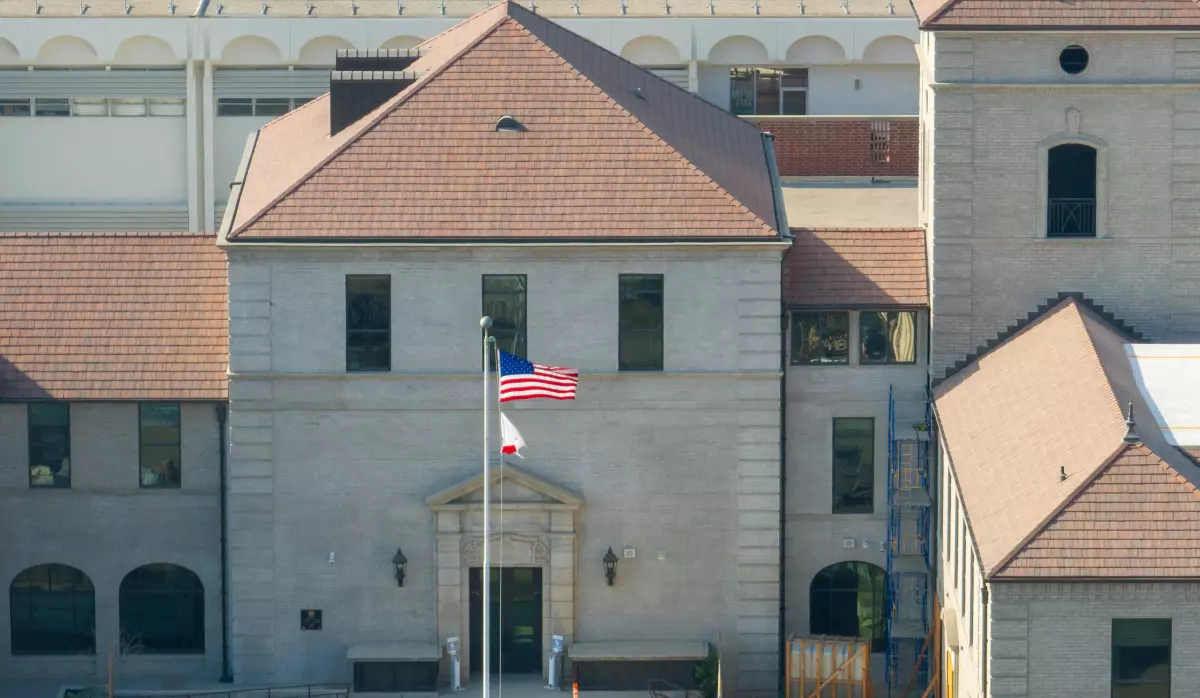In a recent development by the Beverly Hills Unified School District’s Board of Education, a significant decision was made to exhibit the Israeli flag across all campuses and district facilities in acknowledgment of Jewish American Heritage Month in May. This proposal, intertwined within a broader effort to combat antisemitism, encompasses educating students on Jewish history and commemorating poignant events like Holocaust Remembrance Day (Yom HaShoah) and International Holocaust Remembrance Day. Additionally, it designates October 7 as a Day of Remembrance for the 2023 Hamas-led assault on Israel.
The resolution underwent deliberation and ultimately passed in a 3-2 vote, with Board President Rachelle Marcus and Board Member Amanda Stern dissenting for concerns differing in nature. Marcus expressed apprehension about potential risk to schools due to displaying the Israeli flag, while Stern voiced opposition to what she perceives as partisan material within a public school resolution.
The ensuing discourse surrounding the resolution fomented a debate about the appropriateness of allocating extensive resources and time towards recognizing a specific ethnic and religious group in a public school framework. Criticisms levied against incorporating the Israeli flag stemmed from fears that it could signify not just support for Jewish individuals but also tacit endorsement of the Israeli government’s actions in Gaza, where a significant populace grapples with dire circumstances amidst ongoing turmoil.
Notably, critics of the proposal argued that this convergence of Jewish faith, identity, and political actions risks overshadowing the inclusive and equitable environment that public schools should strive to cultivate for all students, irrespective of their cultural backgrounds. Hussam Ayloush, Executive Director of the Los Angeles chapter of the Council on American-Islamic Relations, emphasized the distress and insensitivity this move could evoke among Palestinian students with firsthand experience of adversities resulting from Israel’s military operations.
While all members of the Board initially expressed support for the resolution, subsequent revisions were made to its language before the final vote. The alteration notably shifted the purpose of displaying the Israeli flag from symbolizing support for the Jewish state to reflecting support for the Jewish community as a whole.
In navigating these intricate deliberations, Board Member Russell Stuart underscored the imperative of fostering a supportive atmosphere for Jewish students without delving into complex geopolitical dynamics. Emphasizing the paramount goal of ensuring student safety in schools, Stuart elucidated the resolution’s core mission of combating antisemitism and endorsing inclusivity.
Furthermore, community voices contributed varied perspectives during the deliberative process, with concerns raised about the need to distinguish between anti-Jewish sentiment and critiques of Israeli policies. Criticisms also centered on the resolution’s potential to inadvertently fuel rather than mitigate antisemitic tendencies and its compatibility within a diverse public school landscape.
Amid escalating instances of antisemitic incidents nationwide, manifesting in a stark rise in reported hate crimes, the urgency of addressing and countering antisemitism remains palpable. Against this backdrop, Board Member Sigalie Sabag underscored the resolution’s pivotal role in educating about Jewish history, commemorating past atrocities, and unequivocally denouncing the surge in antisemitic sentiments.
Conclusively, as the Beverly Hills Unified School District embarks on this commitment to commemoration and education, the community grapples with striking a balance between upholding cultural heritage while fostering a safe and inclusive educational environment for all its students.
A district spokesperson emphasized that the Israeli flags will be displayed in various locations across campuses, symbolizing the district’s support for the Jewish community and its stance against antisemitism.

